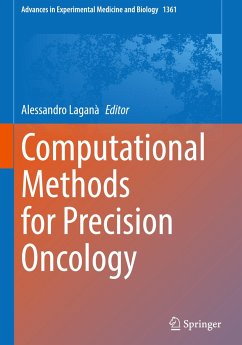
Cancer Systems and Integrative Biology

PAYBACK Punkte
83 °P sammeln!
This thorough volume explores recent advances that have revolutionized the field of precision oncology. The chapters, contributed by experts in the areas of cancer systems and integrative biology, provide hands-on guidance toward developing tools to monitor spatial and temporal changes in tumors, tracking tumor markers in blood, and ultimately developing precision medicine to combat cancer in real time. Written for the highly successful Methods in Molecular Biology series, chapters include the kind of detailed implementation advice that ensures successful results. Authoritative and informative...
This thorough volume explores recent advances that have revolutionized the field of precision oncology. The chapters, contributed by experts in the areas of cancer systems and integrative biology, provide hands-on guidance toward developing tools to monitor spatial and temporal changes in tumors, tracking tumor markers in blood, and ultimately developing precision medicine to combat cancer in real time. Written for the highly successful Methods in Molecular Biology series, chapters include the kind of detailed implementation advice that ensures successful results.
Authoritative and informative, Cancer Systems and Integrative Biology serves as an invaluable resource for researchers, pharmaceutical scientists, and oncologists interested in expanding their knowledge base in the current developments in cancer research.
Authoritative and informative, Cancer Systems and Integrative Biology serves as an invaluable resource for researchers, pharmaceutical scientists, and oncologists interested in expanding their knowledge base in the current developments in cancer research.














